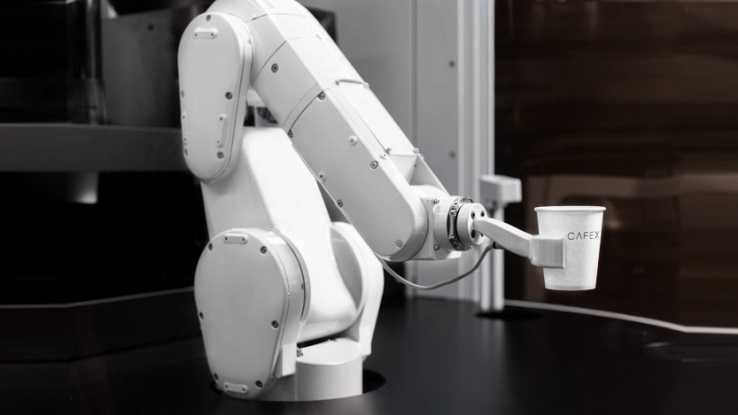A $25,000 robot barista serves 120 cups of coffee an hour — and it is part of a growing ‘robot revolution’ that could kill millions of jobs .
“I don’t see the robot revolution as a problem,” 24-year-old inventor Henry Hu told CNBC.
More restaurants and coffee shops are investing in automation and replacing jobs with robot labor.
A 2017 report found that between six million and 7.5 million retail jobs could become automated in the coming years, leaving a large portion of the retail workforce at risk of becoming “stranded workers.”
A robot barista can whip up 120 drinks an hour — and it reveals a growing trend that is transforming the restaurant industry.
Trendy coffee roasters including Intelligentsia, Ritual, and Equator have partnered with Café X Technologies to create a $25,000 robot barista, CNBC reports. The robot, which operates as the sole barista in a San Francisco café, can make any drink you would expect at a standard trendy coffee shop, including espressos, flat whites, and cortados.
“I don’t see the robot revolution as a problem,” 24-year-old inventor Henry Hu told CNBC.
“The idea isn’t to scare you or harm you in any way. The point is to get you your coffee as quickly and deliciously as possible.”
Prices at Café X are low, with most drinks priced at $3 and nothing costing more than $4, since there are no workers to pay and minimal overhead costs. Plus, there is no reason for customers to tip.
Investors, including the Thiel Foundation and well-known angel investor Jason Calacanis, have supplied Café X with $7 million in funding.
“The idea of humans making coffee for 10 hours a day is as crazy in 2018 as a tollbooth collector sitting in a metal box on a freeway,” Calacanis told CNBC.
“It’s also torture for the customer. Baristas get orders wrong, drink quality is wildly inconsistent, and coffee places don’t keep a record of every customer’s past drink order — but you can do all this with robotics.”
Automation is sweeping the retail industry, with many companies looking to cut labor costs as minimum wages rise.
In 2017, a report from investment advisory firm Cornerstone Capital Group found that between six million and 7.5 million retail jobs could become automated in the coming years, leaving a large portion of the retail workforce at risk of becoming “stranded workers.”
Chains including McDonald’s, Wendy’s, and Panera are investing in kiosks and mobile ordering, which serve roles traditionally filled by cashiers. Meanwhile, smaller chains such as Eatsa and CaliBurger have been working on automating the entire restaurant experience.
“As we see the rising costs of labor, it just makes sense” to consider adding new automated technology, Jack in the Box CEO Leonard Comma said at a conference in January.
Restaurant chain executives have argued that automation is providing a necessary solution as they struggle to fill positions and convince workers to stay.
With low unemployment rates, many people are less inclined to apply for or continue to work at low-paying retail industry jobs.
However, if unemployment rates rise, many Americans may find themselves once again looking for whatever job they can get — only to find restaurant and retail positions filled with robots.
The Café X robot can whip up a mean espresso, but it could be a dark sign for the American worker.


















